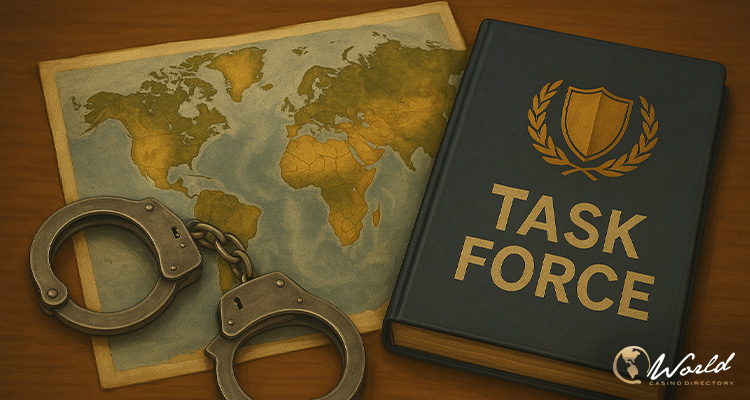A growing concern has emerged in South Korea over the increasing number of nationals engaging in gambling abroad. Experts from the tourism and gambling sectors gathered on Wednesday at a policy forum hosted by The Korea Times and the Tourism Sciences Society of Korea (TOSOK) to discuss this issue. The forum, which included academics, government officials, and industry leaders, focused on the nation’s approach to regulating overseas gambling by its citizens and suggested a more coordinated and comprehensive strategy to address the issue.
The key takeaway from the discussions was the urgent need for a centralized task force to oversee and regulate gambling activities involving Korean nationals outside of the country. Experts also stressed the importance of international cooperation and better regulatory frameworks to curb the growing problem of unregulated gambling abroad, which has led to significant socioeconomic consequences for many South Koreans.
Lee Jae-seok, a professor of tourism at Gangneung-Wonju National University, opened the forum by providing a clear definition of overseas gambling. He described it as “the act of a Korean citizen engaging in gambling at overseas casinos or other gambling facilities with the purpose of financial gain.” The forum participants highlighted the need for comprehensive oversight to address the risks associated with this growing phenomenon.
South Korea’s Gambling Laws and Regulations
South Korea enforces strict laws on gambling for its citizens. The government has limited local gambling opportunities, with only Kangwon Land, located in Jeongseon, Gangwon Province, being a legal casino accessible to locals. Additionally, a horse racing track in Seoul is one of the few places where South Korean nationals can engage in gambling activities. All other casinos in the country are restricted to foreign visitors only.
Despite these regulations, many South Koreans continue to seek gambling experiences outside the country. According to the National Gambling Control Commission, the value of overseas gambling by South Korean nationals reached 4.9 trillion won in 2017—more than double the amount reported in 2011. The majority of this spending, approximately 80 percent, was directed toward gambling destinations in Macau and the Philippines.
South Korea’s laws also prohibit gambling activities that go beyond leisure or entertainment, even when conducted abroad. However, the law lacks a clear definition of what constitutes habitual gambling, leaving legal determinations up to courts. In practice, judges consider several factors, including the time and location of the activity, the amount of money wagered, and the individual’s financial and social status. Those convicted of violating gambling laws may face fines up to 10 million won, and in cases of habitual gambling, penalties can include up to three years in prison or fines as high as 20 million won.
The Rise of Online Gambling and Regulatory Challenges
In addition to traditional casino gambling, there has been a rise in online gambling activities, often unregulated and illegal. Many South Koreans are reportedly engaging in this form of gambling, further complicating the issue. The forum participants emphasized the need for South Korea to strengthen its oversight of both physical and online gambling activities, particularly in overseas markets where regulations are less stringent.
The contrast between South Korea’s restrictive gambling environment and the more casual, welcoming atmosphere of casinos abroad is believed to be a major factor driving South Koreans to gamble overseas. Jeong Kwang-min, a research fellow at the Korea Culture and Tourism Institute, highlighted this disparity and suggested that the lack of legal opportunities for gambling within the country might be pushing more citizens to seek gambling experiences abroad.
A Unified Task Force and International Cooperation
During the forum, Lee Jae-seok called for the establishment of a permanent task force to regulate overseas gambling by Korean nationals. He proposed that this body should have the authority to work with international law enforcement agencies, such as Interpol, to help tackle illegal gambling activities and ensure better enforcement of existing regulations.
The forum participants also suggested that South Korea should engage in more international collaborations with countries like Macau, the Philippines, Cambodia, Laos and Vietnam, where the gambling market is expanding rapidly. The ASEAN region, in particular, has become a key destination for South Koreans seeking gambling experiences, and experts believe it is crucial to monitor gambling activities in these countries more closely.
Strengthening the Domestic Resort Industry
In addition to international regulatory efforts, experts at the forum agreed that South Korea should also focus on improving its domestic integrated resort sector to help combat the demand for overseas gambling. TOSOK President Seo Won-seok emphasized that increasing the competitiveness of domestic casinos could help keep South Korean nationals engaged in legal and controlled environments.
By improving the overall experience and service quality of domestic integrated resorts, South Korea could provide an attractive alternative to foreign gambling destinations. This, in turn, could help reduce the flow of gambling money out of the country while also contributing to economic growth through tourism and job creation.
The Need for More Data and Research
Participants also highlighted the lack of sufficient data on overseas gambling activities by South Koreans. The National Gambling Control Commission has conducted only two major surveys on the topic, one in 2011 and another in 2017. Experts called for more in-depth, field-based research to assess the scale, financial impact, and criminal associations related to overseas gambling. Park Jun-hwi, former vice president of the Korean Institute of Criminology and Justice, urged the government to expand its research and conduct interviews with gamblers to better understand the underlying factors driving this behavior.


